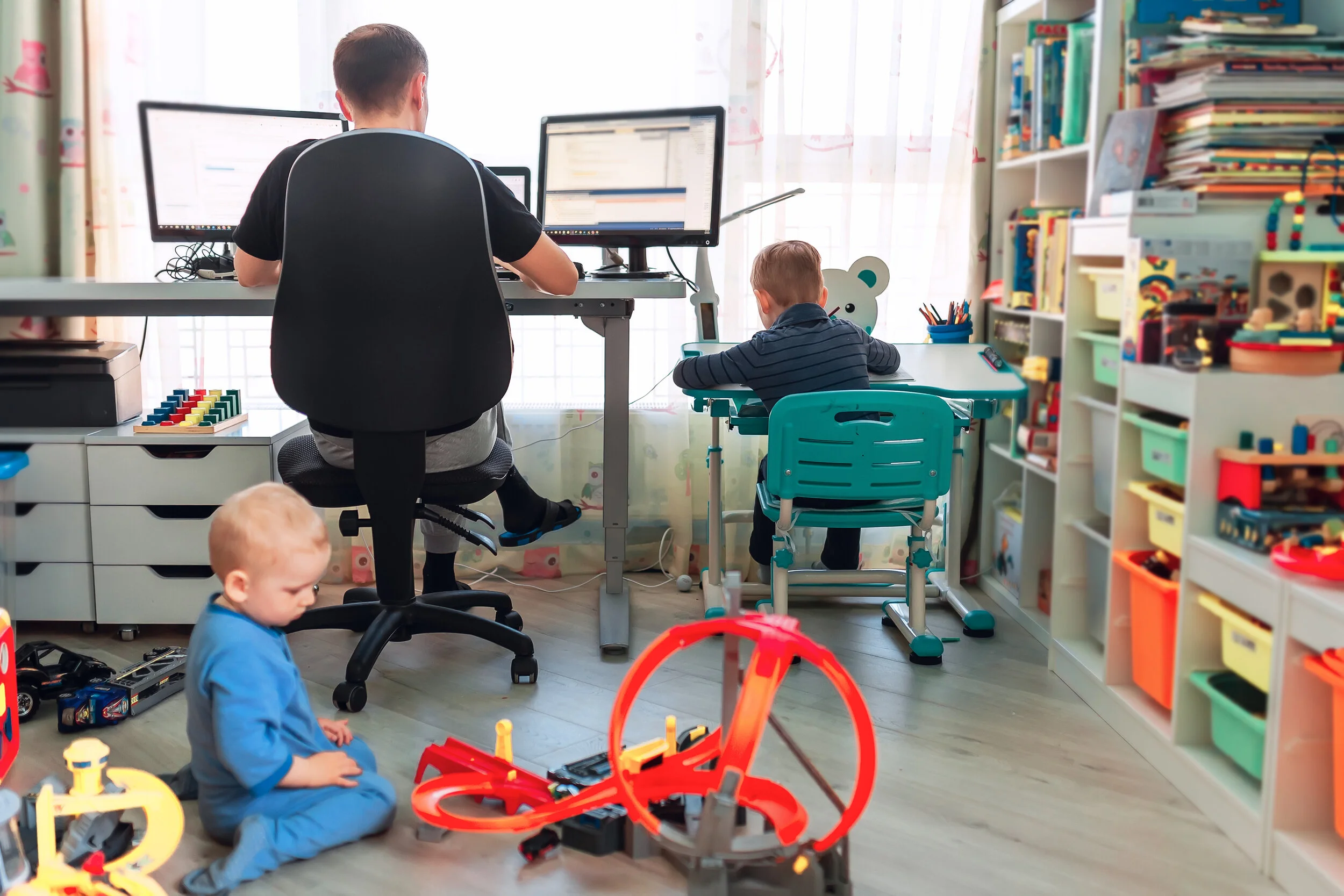
The VM Blog
In our blog, you’ll read about everything from workplace misconduct, report writing, and investigating stale complaints to interviewing non-employee witnesses. We hope these articles help you better understand the investigative law process, where common misunderstandings and hold-ups happen, and best practices we can all employ.
U.S Bank v. Timothy King – A Cautionary Tale for Workplace Investigators
On July 28, 2020 the California Court of Appeal held that a U.S. Bank employee — Timothy King — was entitled to $17,179,392 in compensatory and punitive damages against his employer for defamation and wrongful termination.[1] In making its ruling, the Court took aim at U.S. Bank’s internal workplace investigation — which the Court termed a “deliberate failure to investigate.”
Quick Tips for Conducting Remote Interviews – Lessons Learned from the First Six Months
It feels surreal we are still coping with COVID-19. On March 11, 2020, the World Health Organization declared COVID-19 a pandemic. On March 19, 2020, California Governor Gavin Newsom issued shut-down orders for the state. Even though six months have now passed, things are not back to normal.
Say What? Best Practices for Interviewing Your Witness Through an Interpreter
A 2020 survey revealed approximately 8.3% of the United States’ population, more than 27 million Americans, self-identified as individuals who speak English “less than very well.”[1] With an increasingly diverse job landscape, odds are you have interviewed, or you will interview, a party or witness who is uncomfortable or unable to communicate in English.
Selecting An Investigator in the Era of “Me Too” and the Fight for Racial Justice
Since the onset of the “Me Too” movement, and now during the nationwide fight for racial justice, those seeking an independent investigator have an even larger task in determining who is best qualified to conduct investigations into highly sensitive and political issues.
SPORTICO Quotes Sue Ann Van Dermyden in its Reports on Washington Football Team
On July 16, 2020, the Washington Post published an expose about the Washington Redskins organization’s problematic workplace culture. Fifteen female former employees told the Washington Post they were harassed during their time with the NFL football team. The allegations cover the years 2006 to 2019. According to the Post, the misconduct included sexual comments, verbal abuse, uninvited physical contact, flirting, and other improper conduct.
A View from a Litigator and an Independent Investigator: Permissible Layoff or Discriminatory Behavior? – How to Recognize It and How to Investigate It
California was easing into the third stage of Governor Gavin Newson’s four-stage plan to gradually reopen the state amid the COVID-19 pandemic. However, on Monday July 13, 2020, Governor Newsom issued directives requiring the re-closure of restaurants, movie theaters, family entertainment centers, wineries, zoos and bars for indoor service. Additional sectors were closed in 31 counties.
To Record or Not to Record? That is the Question
Amongst workplace investigators, few topics are more heavily debated than whether it is best practice to record witness interviews. Even the Association of Workplace Investigators (AWI) acknowledges the debate. At AWI conferences, for instance, leadership often jokingly responds to participants’ questions about the topic by saying, “Let’s take up the topic at happy hour tonight!”
No Written Report? No Problem
Workplace investigators are accustomed to writing. 50-page report? 75-page report? Not a problem. Writing detailed, comprehensive investigative reports is what we do. On the other hand, workplace investigators are less accustomed to providing findings to clients without a report – commonly referred to in our industry as “verbal findings” or “oral debriefs.”
Don’t Wait, Investigate!
As California continues on its path to reopening under the state’s four-stage plan, the workplace faces change and opportunity. Should employers permit employees to return to the workplace and, if so, under what guidelines? When is the appropriate time to ask employees to return to the workplace?
Reopening California: One Stage at a Time
California is currently in the second stage of Governor Gavin Newsom’s four-stage plan to gradually reopen the state amid the COVID-19 pandemic. During this stage, lower risk workplaces, including business offices, may reopen with modifications to protect public health and safety.
Bullying in the Remote Workplace
On June 5, 2020, California Governor Gavin Newsom announced that schools, day camps, bars, gyms, campgrounds and professional sports may begin reopening with modifications. This is another step towards reopening California amidst COVID-19. Nonetheless, the process is not complete. Many non-essential workers continue to work remotely fulltime.
New Regulations, New Policies, New Challenges and Opportunities
On Wednesday, May 6, 2020, the Department of Education (DOE) released their new Title IX regulations. Clocking in at 2,033 pages (not a typo – 2,033 pages), many of us in the educational field continue to comb through them to understand schools’ new responsibilities. The regulations are effective August 14, 2020.
Pandemic Parenting
Shortly before the COVID-19 pandemic became national news, my coworker and I joked about leaving our office for the day to start our “second shift” – caring for our children, spouses, and homes when we got home from work. Shortly thereafter, the shelter-in-place order went into effect and suddenly my “second shift” collided with my day job.
Ways to Give Back and Support Communities During COVID-19
During these difficult times, a compassionate and responsive community is a source of comfort. Across the country, individuals, businesses, and communities are collaborating in unprecedented ways to give to those impacted by COVID-19. The outpouring of empathy, generosity, and ingenuity leaves us at VM Law with a profound sense of gratitude.
COVID-19: Stealing Time or Time Well Spent?
The impact of COVID-19 continues to fundamentally alter the American workplace. Remote workers are the norm, furloughs are unavoidable in certain sectors, and employers considered “essential” are struggling to maintain productivity whilst preserving a positive workplace culture.
These changes will carry over and impact the way workplace investigators do their jobs, too.
Evolving Workplace Complaints in the COVID-19 Era
Surreal times. Face masks, gloves, home confinement, closed offices, and brave essential workers. COVID-19 has rapidly altered the American workplace. Employers – particularly Human Resources professionals – are grappling with a host of difficult issues. How to monitor a remote workplace, how to keep employees safe, how to manage the return to the workplace, to name a few.
Report Writing While Remote: Practical Tips to Boost Productivity
It is 3:00 in the morning. Your investigative report is due. It is the eleventh hour. You stare anxiously at the blank Word document – the cursor blinking at you – almost as if to mock your current predicament. We have all been here once or twice, even under normal circumstances. But with the ongoing change and uncertainty of the current COVID-19 crisis, the risk of facing that blank space seems more real than ever.
McGeorge Graduate Sue Ann Van Dermyden on Workplace Investigations
In this video, Sue Ann Van Dermyden discusses how neutral workplace and campus investigations allow her to marry her love of people with her passion for the law. She also highlights our Firm's commitment to McGeorge School of Law through participation in the Alumni Advisor Network and through hiring recent graduates.
COVID-19: California Deadline Extension for Investigations of Public Safety Officers and Service of Adverse Action on State Employees
The upheaval caused by COVID-19 continues to impact workplace investigations. Personally, many are suffering from illness, isolation and loss of income. Professionally, agencies are struggling to respond to COVID-19 while adhering to statutory deadlines and mandates.
Keeping a Finger on the Pulse of Employee Morale in the Covid-19 Landscape – The Climate Assessment
As workplaces adjust to COVID-19, it may become harder for employers to keep a pulse on employee morale. Are people happy working from home? Do workers understand their responsibilities as remote employees? Is there going to be a decline in employee work performance?




















